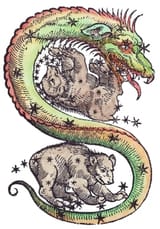Search Results
6/28/2025, 4:36:57 AM
>>17797215
>>17797222
>Another commonly proposed derivation of Arthur from Welsh arth "bear" + (g)wr "man" (earlier *Arto-uiros in Brittonic) is not accepted by modern scholars for phonological and orthographic reasons. Notably, a Brittonic compound name *Arto-uiros should produce Old Welsh *Artgur (where u represents the short vowel /u/) and Middle/Modern Welsh *Arthwr, rather than Arthur (where u is a long vowel /ʉː/). In Welsh poetry the name is always spelled Arthur and is exclusively rhymed with words ending in -ur—never words ending in -wr—which confirms that the second element cannot be [g]wr "man"
>An alternative theory, which has gained only limited acceptance among professional scholars, derives the name Arthur from Arcturus, the brightest star in the constellation Boötes, near Ursa Major or the Great Bear. Classical Latin Arcturus would also have become Art(h)ur when borrowed into Welsh, and its brightness and position in the sky led people to regard it as the "guardian of the bear" (which is the meaning of the name in Ancient Greek) and the "leader" of the other stars in Boötes
Arthur = "Bear" | Pendragon = "Chief Dragon".
Arthur derives from artos = bear.
Pendragon literally means “Chief Dragon” (from the Welsh Pen = head/leader + Draig = dragon).
Sometimes interpreted as “dragon of leadership” or “dragon prince”.
So the full name Arthur Pendragon can be read as: “The Bear, Chief of Dragons” — or even “The Celestial Bear”.
Ursa Major / Ursa Minor and Draco are polar/northern constellations.
Ursa Major and Ursa Minor (Big and Little Dipper) circle the North Celestial Pole.
The pole star (Polaris) is in the tail of Ursa Minor.
Draco, the dragon constellation, coils between them like a serpent or guardian dragon.
In many ancient traditions, these constellations were associated with celestial kingship, immortality and eternal thrones.
>>17797222
>Another commonly proposed derivation of Arthur from Welsh arth "bear" + (g)wr "man" (earlier *Arto-uiros in Brittonic) is not accepted by modern scholars for phonological and orthographic reasons. Notably, a Brittonic compound name *Arto-uiros should produce Old Welsh *Artgur (where u represents the short vowel /u/) and Middle/Modern Welsh *Arthwr, rather than Arthur (where u is a long vowel /ʉː/). In Welsh poetry the name is always spelled Arthur and is exclusively rhymed with words ending in -ur—never words ending in -wr—which confirms that the second element cannot be [g]wr "man"
>An alternative theory, which has gained only limited acceptance among professional scholars, derives the name Arthur from Arcturus, the brightest star in the constellation Boötes, near Ursa Major or the Great Bear. Classical Latin Arcturus would also have become Art(h)ur when borrowed into Welsh, and its brightness and position in the sky led people to regard it as the "guardian of the bear" (which is the meaning of the name in Ancient Greek) and the "leader" of the other stars in Boötes
Arthur = "Bear" | Pendragon = "Chief Dragon".
Arthur derives from artos = bear.
Pendragon literally means “Chief Dragon” (from the Welsh Pen = head/leader + Draig = dragon).
Sometimes interpreted as “dragon of leadership” or “dragon prince”.
So the full name Arthur Pendragon can be read as: “The Bear, Chief of Dragons” — or even “The Celestial Bear”.
Ursa Major / Ursa Minor and Draco are polar/northern constellations.
Ursa Major and Ursa Minor (Big and Little Dipper) circle the North Celestial Pole.
The pole star (Polaris) is in the tail of Ursa Minor.
Draco, the dragon constellation, coils between them like a serpent or guardian dragon.
In many ancient traditions, these constellations were associated with celestial kingship, immortality and eternal thrones.
Page 1
